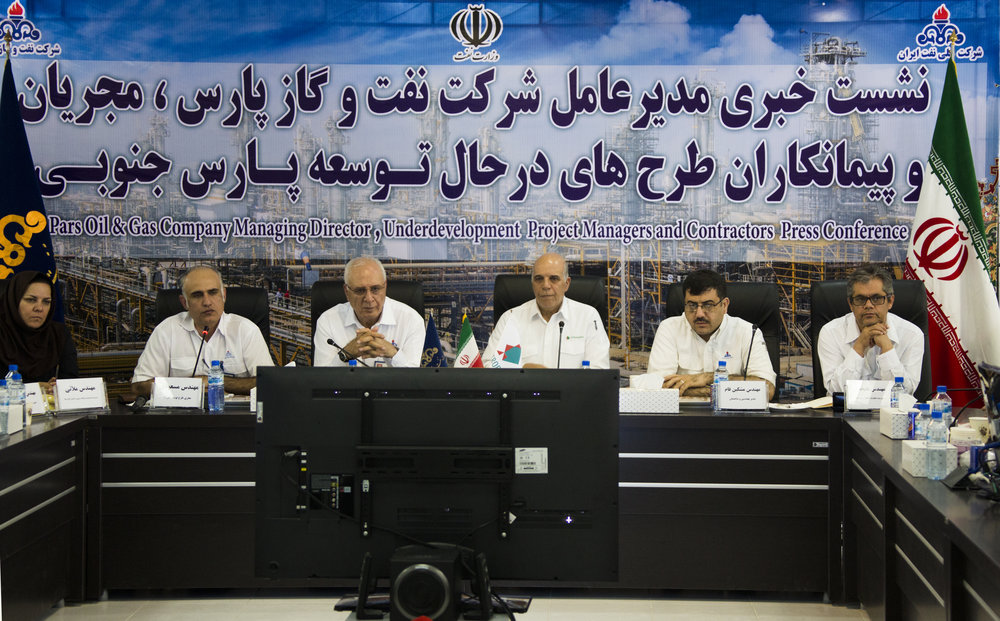JCPOA implementation unblocked oil, gas equipment: POGC head

Southern Province of Bushehr, Assalouyeh- On the sidelines of a visit by reporters to phases 19, 20, and 21 of the massive South Pars gas field on the occasion of Iran’s Government Week (August 23-29), Managing Director of Pars Oil and Gas Company (POGC) Ali-Akbar Shabanpour told the Tehran Times that the implementation of the nuclear deal, known as JCPOA, in January, has played a pivotal role in releasing the frozen equipment needed in oil and gas industry and lubricating the development of undergoing South Pars projects.
“Some of the instruments that had been purchased by Iran such as turbo compressors were blocked in different countries such as the United Arab Emirates and some European countries under the anti-Iranian sanctions,” Shabanpour said, “following the JCPOA implementation the gates became open for their imports.”
“We had ordered some control and safety valves to Spanish companies, according to their specific alloy and after the implementation of the nuclear deal we could receive them,” he added.
As he further described, the other advantage of the deal execution was return of the vendors to oil and gas industry.
“We have bought some equipment from some specific vendors and due to hardware and software as well as guarantee issues the purchased instruments should be installed, controlled and become operational by the vendors themselves,” he said, “now the ground is set for vendors to take part in Iranian oil and gas projects.”
As the POGC managing director announced in the held news conference, “during the past two years, more than 150 mcm have been added to South Pars daily production capacity and its current production level stands at 430 mcm.”
“Phases 17, 18, 19, 20, and 21 will become online by the first months of the next Iranian calendar year (starts March 20, 2017) and they will add 100 mcm to the current daily output of South Pars gas field,” he said, “therefore, the production in this gas field will hit 530 mcm per day by the said time.”
He added that all the required contracts for development of South Pars, except that of phase 11, have been endorsed by the time being and up to $11 billion of finance has been attracted for the completion of these projects.
Shabanpour underlined that all the achievements in South Pars has been obtained meeting safety standards and relying on domestic capabilities and experts, without foreigners’ participation.
He also announced that having all phases of South Pars operational within the upcoming three years, the output will reach 800 mcm per day.
South Pars is a huge offshore field, Iran shares with Qatar in the Persian Gulf. The field is estimated to contain a significant amount of natural gas, accounting for about eight percent of the world’s reserves, and approximately 18 billion barrels of condensate. South Pars is divided into 24 standard phases, of which phases 1-10, 12, 15 and 16 are fully operational. Each standard phase is projected to produce 50 million cubic meters (mcm) of gas per day.
HJ/MA/MG
